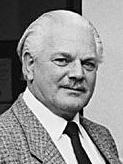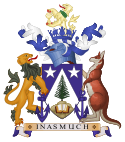
The Country Liberal Party of the Northern Territory (CLP), commonly known as the Country Liberals, is a centre-right political party in Australia's Northern Territory. In local politics, it operates in a two-party system with the Australian Labor Party (ALP). It also contests federal elections as an affiliate of the Liberal Party of Australia and National Party of Australia, the two partners in the federal coalition.

The Liberal Party of Australia is a centre-right political party in Australia. The party is one of the two major parties in Australian politics, the other being the Australian Labor Party. The Liberal Party was founded in 1944 as the successor to the United Australia Party. Historically the most successful political party in Australia's history, the party is now in opposition at a federal level and does not hold government in any Australian state or territory with the exception of the island state of Tasmania.

Politics of Norfolk Island takes place in a framework of a parliamentary representative democratic entity. Norfolk Island is the only non-mainland Australian territory to have achieved self-governance. The Norfolk Island Act 1979, passed by the Parliament of Australia in 1979, is the Act under which the island is governed.
The parliaments of the Australian states and territories are legislative bodies within the federal framework of the Commonwealth of Australia.

The Legislative Assembly for the Australian Capital Territory is the unicameral legislature of the Australian Capital Territory (ACT). It sits in the Legislative Assembly Building on Civic Square, close to the centre of the city of Canberra.

Trevor Thomas Kaine, was an Australian politician who served as Chief Minister of the Australian Capital Territory from 1989 to 1991. Kaine was elected into a multi-member single electorate in the unicameral Australian Capital Territory Legislative Assembly, from 1989 to 2001, initially as a member of the Liberal Party and later as an independent.
Government in Australia is elected by universal suffrage and Australian women participate in all levels of the government of the nation. In 1902, the newly formed Commonwealth of Australia became the first nation on earth to enact equal suffrage, enabling women to both vote and stand for election alongside men Women have been represented in Australian state parliaments since 1921, and in the Federal Parliament since 1943. The first female leader of an Australian State or Territory was elected in 1989, and the first female Prime Minister took office in 2010. In 2019 for the first time, a majority of members of the Australian Senate were women. At the time of its foundation in 1901, and again from 1952 to 2022, Australia has had a female monarch as ceremonial Head of State, while the first female Governor of an Australian State was appointed in 1991, and the first female Governor-General of Australia took office in 2008.

The 1989 Australian Capital Territory general election was held on 4 March 1989 to elect the 1st Australian Capital Territory Legislative Assembly. This was the first direct election by voters in the Australian Capital Territory (ACT) for their power legislative body.

The Norfolk Island Legislative Assembly was the prime legislative body of Norfolk Island from 1979 to 2015. Formed after the Norfolk Island Act 1979 was passed in the Australian Parliament, its first members were elected on 10 August 1979. The last assembly was the 14th, elected on 13 March 2013. On 17 June 2015, the Australian Government abolished the assembly, ending self-government on the island. Norfolk Island Regional Council, a local government body instituted under New South Wales law and with significantly-restricted powers, was established in July 2016 to perform local-level governance on the island.

The politics of Australia operates under the written Australian Constitution, which sets out Australia as a constitutional monarchy, governed via a parliamentary democracy in the Westminster tradition. Australia is also a federation, where power is divided between the federal government and the states and territories. The monarch, currently King Charles III, is the head of state and is represented locally by the Governor-General of Australia, while the head of government is the Prime Minister of Australia, currently Anthony Albanese.
The Australian Capital Territory House of Assembly was the main elected representative body of the Australian Capital Territory between 1975 and 1986, during which time preparation began for the granting of self-government to the Territory. The Assembly had a largely advisory role, with most of the power over the Territory being in the hands of the relevant federal minister.

A general election for the Australian Capital Territory Legislative Assembly was held on Saturday, 15 October 2016.
The ACT Labor Party, officially known as the Australian Labor Party (Australian Capital Territory Branch) and commonly referred to simply as ACT Labor, is the ACT branch of the Australian Labor Party (ALP). The branch is the current ruling party in the Capital Territory and is led by Andrew Barr, who has concurrently served as chief minister of the Australian Capital Territory since 2014. It is one of two major parties in the unicameral Australian Capital Territory Legislative Assembly, and is currently in a coalition with the ACT Greens.

The 2020 Australian Capital Territory general election was held between 28 September and 17 October 2020 to elect all 25 members of the unicameral ACT Legislative Assembly.
The 2010 Norfolk Island legislative election was held on 17 March 2010 to elect the 13th Norfolk Island Legislative Assembly, the prime legislative body of Norfolk Island.

The 2013 Norfolk Island legislative election was held on 13 March 2013 to elect the 14th Norfolk Island Legislative Assembly, the prime legislative body of Norfolk Island.
The 1979 Norfolk Island legislative election was held on 10 August 1979 to elect the 1st Norfolk Island Legislative Assembly, the prime legislative body of Norfolk Island.

The Norfolk Island Labor Party, also known simply as Norfolk Labor, was the Norfolk Island branch of the Australian Labor Party. It operated as a sub-branch of the ACT Labor Party.
A referendum was held in Norfolk Island on 8 May 2015, asking residents if they should have a say in determining the island's political status. The referendum was successful, although the result was non-binding.

The Norfolk Island Liberal Party, more commonly referred to simply as the Norfolk Liberals, is the Norfolk Island wing of the Liberal Party of Australia. It currently operates as the "Norfolk Island Interest Branch" of the Canberra Liberals.












